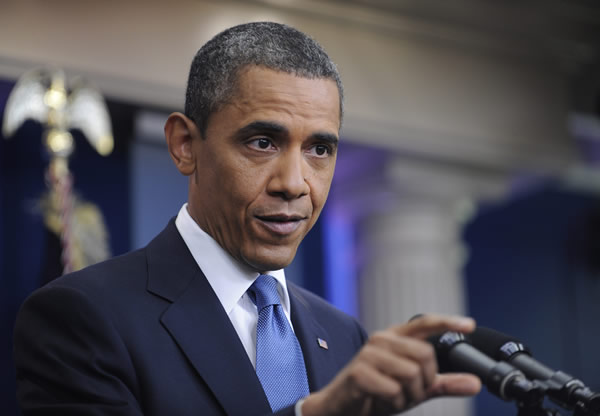National Financial Capability Month: Is President Obama Setting a Good Example?
Romina Boccia /
Last week, the President declared April 2013 National Financial Capability Month in an effort to encourage Americans to budget responsibly.
This is a commendable goal. However, with the President’s budget more than two months late, it’s worth considering how the President is managing the nation’s finances:
- He grew the national debt by more than $6 trillion—from $10.6 trillion on January 21, 2009, to $16.7 trillion on April 1, 2013. That’s a two-thirds increase in a little over four years. This is comparable to a family that owed $100,600 in debt in 2009 and now owes $160,700 (without a mortgage).
- He has no intention of balancing the budget—ever. When the President says he wants a “balanced” approach to the budget, he does not mean that he wants the budget itself to balance; rather, he means that he wants to raise taxes on Americans. Even with his tax hikes in place, spending will continue to grow far beyond revenues.
- He has shown little leadership on strengthening Social Security and Medicare, which face huge funding shortfalls. Social Security has been running deficits for three years in a row now. Its trust fund will be depleted within 20 years, threatening a 25 percent cut in benefits for all recipients, even the poorest seniors. Medicare’s trust fund is projected to be depleted in a mere 11 years, threatening benefits cuts that would make it even more difficult for seniors to access care.
The example the President’s record sets is concerning, but what’s even more troubling is that the President’s failure to successfully manage the nation’s finances makes it more difficult for the very same individuals and families he is targeting with National Financial Capability Month to accomplish stable family finances in their own households.
High public debt threatens to drive interest rates up, crowd out private investment, and raise price inflation. These effects will have severe implications for all Americans, but the poor, the elderly, and the middle class will be hit the hardest. Already the share of publicly held debt per American is close to $40,000 (see chart at bottom). Add in intragovernmental debts owed to programs like Social Security, and every American is on the hook for more than $50,000.
President Obama has another opportunity to propose a serious budget that puts federal spending on a path to balance and tackles the increasing budget challenges the nation faces. Will he set a good example by budgeting responsibly, or will he continue on the current path toward a fiscal crisis that leaves all Americans worse off? The nation will soon know the answer.

